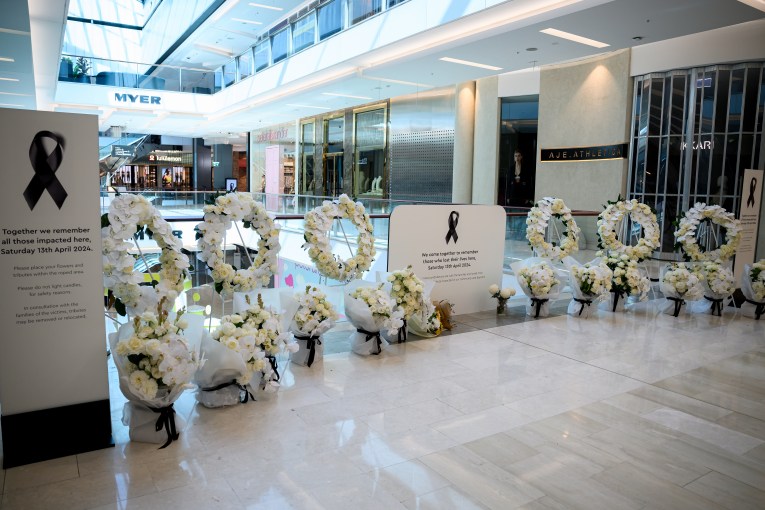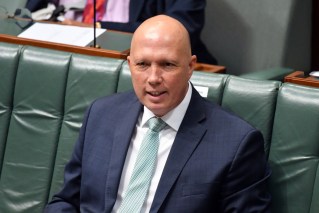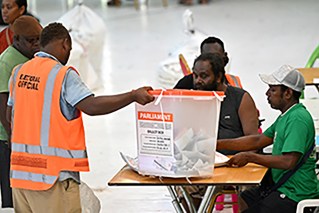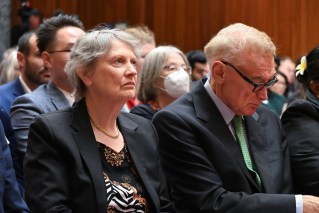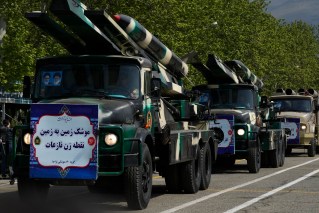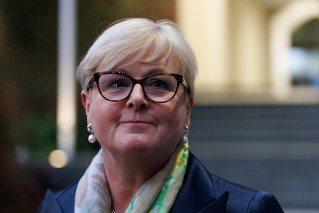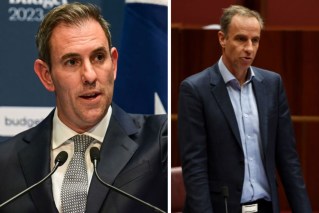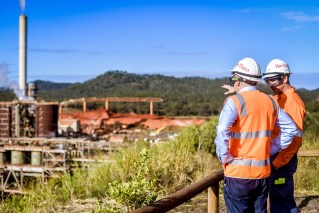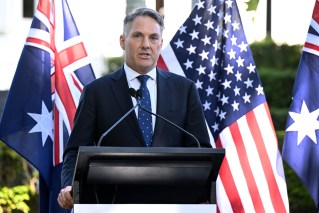Coronavirus: Australia in ‘negotiations’ for more vaccines, but Pfizer doses out of reach

Australia is in negotiations with “a dozen” COVID vaccine manufacturers in hopes of securing more effective doses like the Moderna candidate, but health experts are stressing that our current stocks are already good enough to save many lives.
The government was forced into damage control on Wednesday after several doctors questioned the commitment to the AstraZeneca vaccine, which has been shown in initial tests to have a lower efficacy rate than other leading candidates.
The nation’s chief medical officer Paul Kelly said officials were now “worried” about vaccine hesitancy among Australians, and are moving to reassure citizens that jabs will be safe and effective.
“It will save lives. By using this vaccine, we’ll be able to protect a large proportion of the population in Australia,” Professor Kelly said of the AstraZeneca vaccine on Wednesday.
“I am worried about the selective use of the data that we have, those interim results from particular studies back in November.”
The AstraZeneca model, which accounts for nearly half of Australia’s total vaccine stock, last year reported interim efficacy results of between 62 and 90 per cent, depending on dosage.
That is below both the Pfizer and Moderna vaccines, which had 95 percent efficacy.
Australia has ordered 54 million AstraZeneca doses, with only 10 million of Pfizer, and has no contract with Moderna.
Professor Kelly said Australia was committed to AstraZeneca for several reasons, including that it can be made onshore at Melbourne’s CSL laboratories, and its ability to be easily transported and stored.
That compares to the Pfizer and Moderna vaccines, which Australia does not have manufacturing ability to make onshore, and which are much harder to store and transport.
It is very effective against severe illness,” Professor Kelly stressed.
He said that Australia’s success in controlling the virus may actually now have a downside, in that there is very little natural immunity in the community to COVID – far less than in other nations that have had large outbreaks.
This, he said, was a factor in wanting to roll out readily available stocks soon.
“In many ways, Australia is at more risk from that point of view. Therefore, it’s more important to roll out as much vaccine as we can, as quickly as we can,” he said.

Pfizer only gave Australia access to 10 million doses, Professor Kelly said. Photo: AAP
“That’s actually the counterfactual here. It’s not whether one is better or the other. It’s ‘what do we have available?’ We have the AstraZeneca available, for the whole country.”
The CMO’s press conference came after a full day of the federal government racing to shore up public support for AstraZeneca’s vaccine, including Professor Kelly giving multiple TV and radio interviews to explain the finer details.
Labor’s shadow health minister Chris Bowen said on ABC radio it “would be better if the federal government, the Morrison government, had more deals, more advanced supply agreements in place”.
“Australia has three. International best practice is five or six,” Mr Bowen said.
Professor Kelly said Australian officials had actually been in negotiations with Johnson & Johnson over its promising vaccine, and that the company had begun its application process to be registered in Australia.
However, the CMO said that was now “off the table”.
“I’m not at liberty to talk in detail. There were issues we were not able to agree on with Johnson & Johnson, mainly in their court,” Professor Kelly said.
“We were unable to reach agreement.”
He also added that Australia had only been given the chance to buy 10 million doses of the Pfizer vaccine, enough for five million people.
“We posed the question [to Pfizer] ‘How many vaccines can you give us in the first half of 2021?’ and they gave us an answer,” Professor Kelly said.
“That answer was 10 million. We are continuing and having many conversations with them … [including] any possibility that we could increase that number.
“At the moment, that is what it is. And frankly, there are other countries in the world that need it more than we do right now.”

Scott Morrison and Professor Kelly at AstraZeneca’s Sydney labs. Photo: AAP
It’s unclear when more doses would be available.
But Pfizer said in December it would not be able to manufacture as many doses globally as it had hoped, due to raw material shortages.
Professor Kelly said the government was “in virtually constant discussion” with Pfizer, and hoped to access more supply.
“If there were more doses available to us, we would look into whether that was a feasible option for us to get more. So far, that’s not the case,” he said.
“We can follow up with any of the other vaccines next year, once they become available. And more will be available to us in 2022 than is currently the case.”
He said the government was also in “conversations” and “active negotiations” with Moderna and a dozen other companies, for other vaccine deals.
Professor Kelly added that Australia was also “putting in bids” through the global COVAX facility for more vaccine doses, which could include Moderna or Pfizer.
Mr Bowen called on the government to lock in more vaccine deals.
“We don’t know yet whether AstraZeneca will even pass the TGA test. We hope it will. It probably will, but there’s always risk,” he said.
“That’s why the federal government should have been months ago spreading that risk more thinly with more deals.
“We need more. We need more doses of as many vaccines as possible.”
